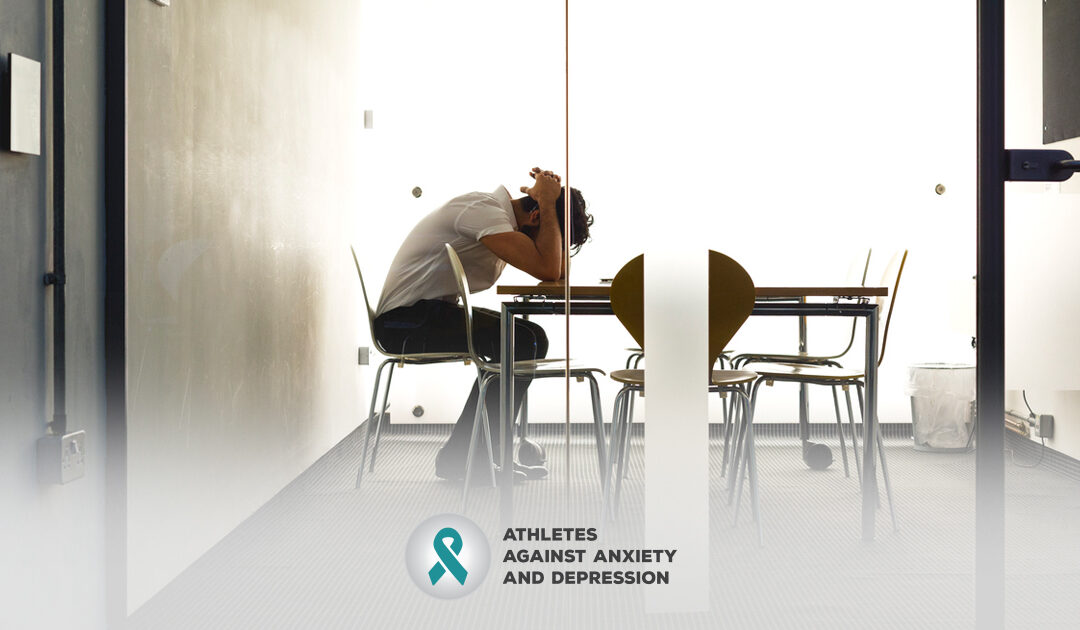by China McCarney, Founder – Athletes Against Anxiety and Depression
Anxiety and panic attacks can be overwhelming, debilitating and tough to overcome. At times, it can feel downright impossible to pull yourself out of a moment of extreme panic. I know for me the hardest part at the beginning of dealing with panic attacks was not knowing how to cope in the moment. I was not equipped with tools and information to help me relax and get out of the anxious moment or panic attack.
Over my journey with anxiety and panic attacks, and as that journey continues today, I have been fortunate enough to learn coping skills to help me when anxiety or panic strikes. I continue to do extensive research on what leaders in the Psychology community are recommending. I continue to try all of the skills and concepts my therapist recommends. The key, in my opinion, is to educate yourself as much as possible and then implement different tools to see what works for you. Once you discover a few skills that work for you, hold on to those so that you can implement them in times of struggle.
Here are the 5 tools I currently use when dealing with anxiety or panic attacks:
1- Deep Breathing
Yes, we have all heard this before. “Take a deep breath” “Relax”. Those words are great but they mean nothing when they are just empty recommendations from someone that doesn’t understand what you are going through. When I think about “Deep Breathing” I think about being consumed with the process of the breath. I implement a 4-4-4-4 series of breathing, also known as “Box Breathing”. 4 seconds of inhale, 4 seconds of hold, 4 seconds of exhale, and 4 seconds of hold. Repeat, repeat, etc., etc.
The reason this is so much more than just simply breathing is by focusing on the count, and slowing down your breath, you get out of your head and consumed by your breath. Your body naturally relaxes with the deep and slow breathing and you are no longer focusing on the anxiety or panic and it slowly fades. Give this 4-4-4-4 breathing a try the next time you are feeling anxious or panic and see if it works for you.
2- Immerse Yourself in Your Environment
Often times when anxiety or panic begins it is all we can focus on. We start to focus exclusively on our anxious thoughts and the panic snowballs out of control at times. A very helpful tool I have used in the past is immersing myself in the environment immediately around me. For example, if I am outside I start to notice the sounds, colors and smells around me. I might start to notice the make and model of the cars passing by. Anything to take the focus out of your head and into your environment helps the anxiety and panic subside and you begin to feel more calm.
3- Welcome the Anxiety
I know I know, just by reading that title for #3 you are probably skeptical. I was very skeptical at this tactic when it was first recommended to me. However, when I started to welcome my anxiety and panic, instead of fighting like hell to get rid of it, something amazing started to happen. I do not mean you have to love your anxiety or the symptoms. I am simply saying that when the panic or anxiety starts if you can simply say to yourself, “Ok it is here, I’m not going to fight it. It is a part of me and it will run it course.” Any inner dialogue you can have like that will send the message to your brain that you aren’t fighting and you aren’t scared. You will therefore avoid the sever fight-or-flight response and shorten the duration of the anxiety episode.
4- Draw on Experience
One of your most powerful allies in your Mental Health battle is YOURSELF. Every battle that you fight and get through is another notch on your belt and something to be proud of. You are still alive, living life and attempting to get better each and every day. Sometimes a simple reminder of how much you’ve been through can calm you down. Remind yourself of all of your successes in the past when you start to feel anxiety or panic. This will give you a sense of confidence and calm you down immensely.
5- Meditation
This last one isn’t necessarily an “in-the-moment” tool but it can change your life immediately. If you do not currently have a daily mental practice where you work on having a quiet mind I urge you to start today. 5-10 minutes a day of deep breathing while focusing on nothing can train your body and mind to relax in many situations. If you are consistent in this practice you will start to feel an overall sense of calm. This will help when a moment of anxiety or panic occurs. You will be able to get back to a state of calm and relaxation much more quickly.
These are 5 tools I currently use when dealing with my anxious moments and panic attacks. As I stated before, do your research, educate yourself, and use what works best for you. It is all about living life. If panic attacks or anxious moments occur, utilize your favorite strategies to get back to the task at hand. Strive to thrive and be the change you wish to see in your life.

